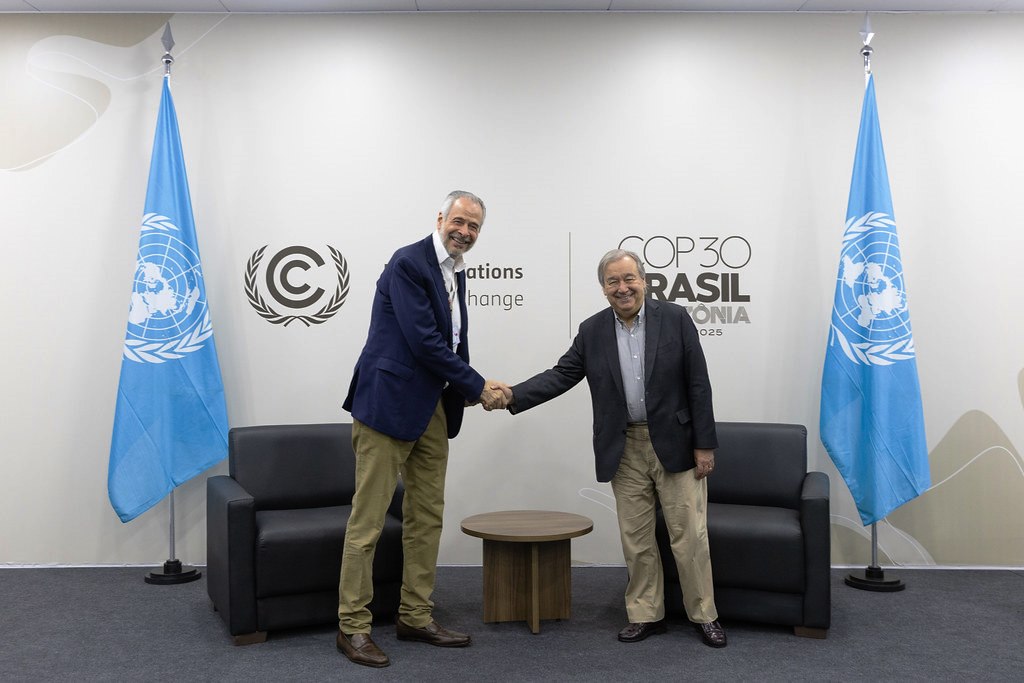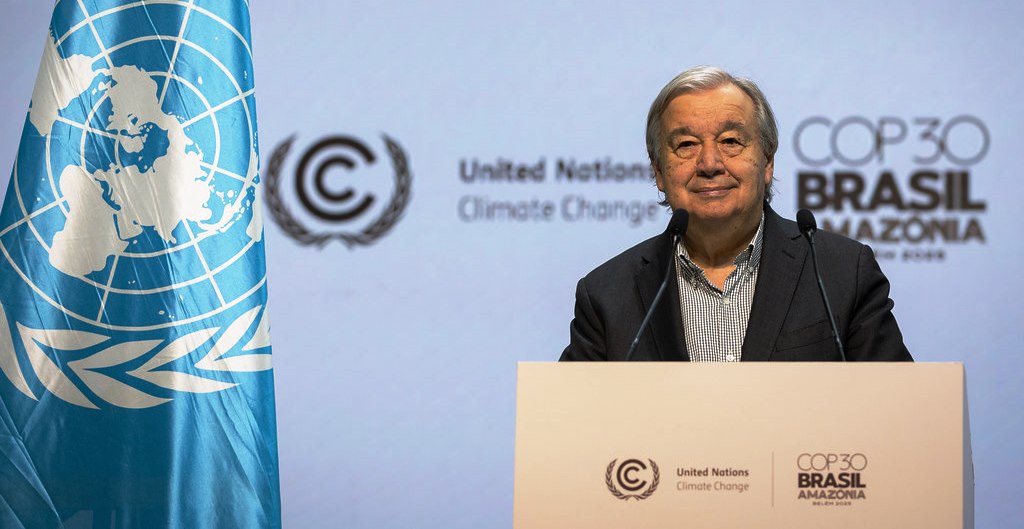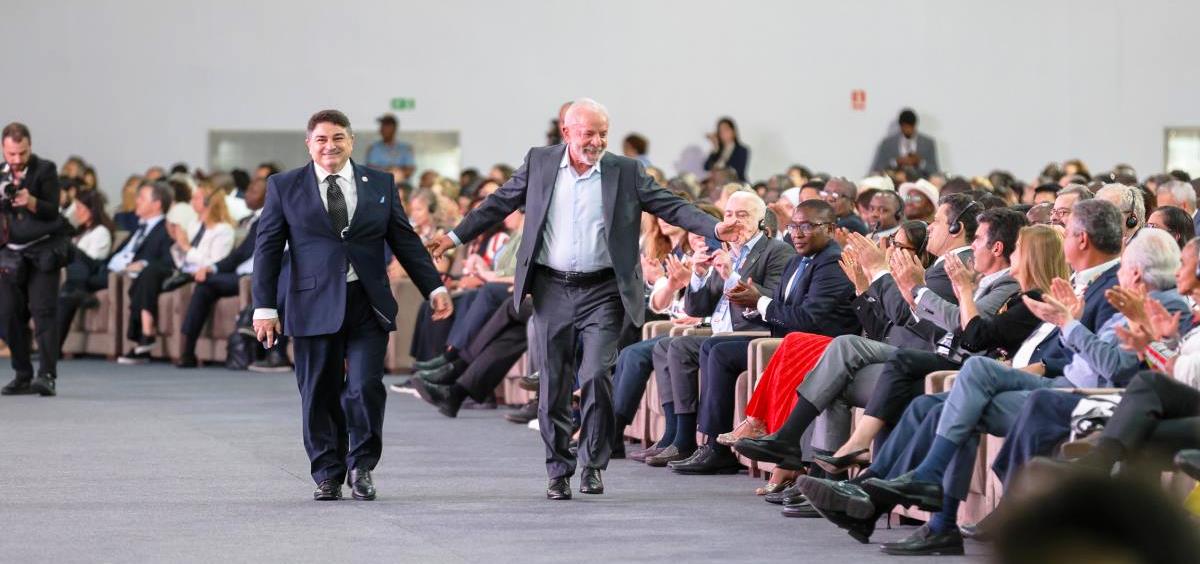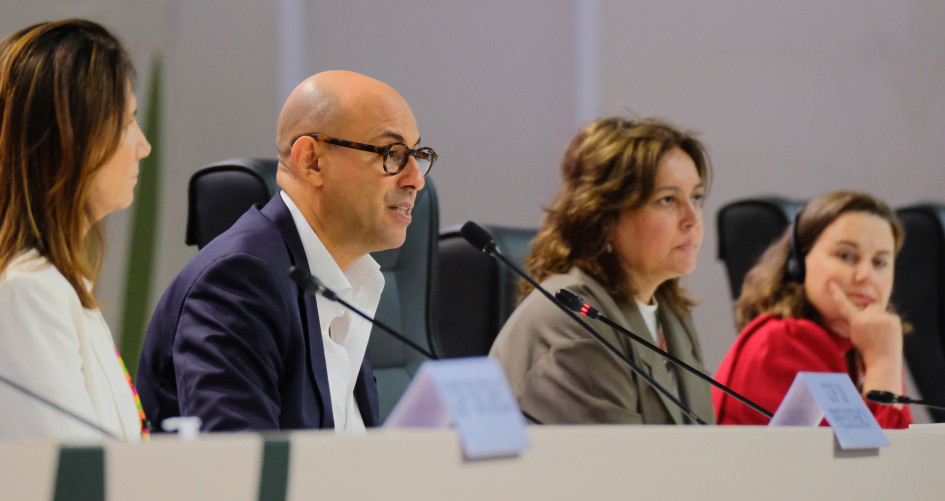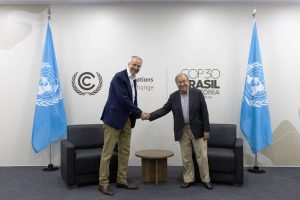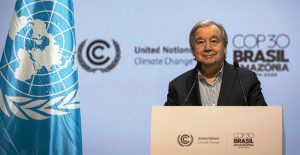UN Secretary General António Guterres addressing a press conference at COP30. PHOTO/UN.
By PATRICK MAYOYO
The Outcomes Report on the Global Climate Action Agenda was released on Friday at COP30 in Belém, offering a comprehensive overview of groundbreaking progress on real-world climate actions that will accelerate the global transition to a sustainable, low-carbon future.
The report, which details key steps taken during the conference, was accompanied by impassioned remarks from UN Climate Change Executive Secretary, Simon Stiell, who underscored the importance of ongoing global cooperation to achieve the Paris Agreement’s climate goals.
The new report confirms that COP30 has set a robust framework for addressing the interconnected challenges of climate change, economic growth, and job creation. The outcomes reflect a global commitment to reducing greenhouse gas emissions while fostering sustainable, inclusive development.
A major highlight of the conference is the announcement of a trillion-dollar investment into clean energy and upgraded energy grids, signaling a pivotal shift toward renewable energy sources. This investment is expected to significantly reduce emissions while improving access to clean, affordable energy for millions.
The report also reveals a groundbreaking global plan to quadruple sustainable fuel production, including biofuels and green hydrogen. This initiative aims to decarbonize industries and transportation sectors, while creating new markets and jobs.
COP30 also set the stage for the creation of new green industries. The transition to a circular economy, powered by renewable resources, will generate millions of new jobs, particularly in the manufacturing, construction, and technology sectors.
The Outcomes Report also highlighted significant progress in securing funding for adaptation projects in vulnerable regions.
These initiatives will enhance resilience to climate impacts and ensure that communities, especially in the Global South, are better equipped to handle extreme weather events.

Participants at COP30 talks in in Belém, Brazil. PHOTO/UN.
Countries around the world have committed to integrating climate action into national strategies that include entire economies and societies. These plans emphasize a cross-sectoral approach that tackles emissions, strengthens resilience, and creates green jobs at the same time.
At the high-level closing event, Simon Stiell expressed his gratitude for the collaborative spirit of COP30, but emphasized that the work is far from over.
“We have said throughout this COP that the world is watching, and willing climate cooperation to stand firm in a fractured world. The Climate Action Agenda is showing this cooperation at work,” Stiell said.
UN Climate Change Executive Secretary added that COP30 had racked up an impressive scorecard of real-world climate actions that will also mean stronger economies, more jobs, and better lives for many millions.
He highlighted key initiatives such as the trillion-dollar clean energy investment and global efforts to scale sustainable fuels, calling them vital steps toward a sustainable future. But Stiell also made it clear that, while progress has been made, the work of implementation must now intensify.
“This is no moment for self-congratulations – this is the moment to step up,” Stiell stressed. “We must strive for measurable, real-world results for people, for economies, and for the planet.”
The UN Executive Secretary also praised the COP30 Presidency for its clear vision and leadership in aligning the Climate Action Agenda with the formal negotiations.
He emphasized that these actions were not isolated from the broader COP process, but were crucial for delivering the tangible outcomes that the Paris Agreement envisioned.

UN Secretary General António Guterres being escorted out of a press conference at COP30. PHOTO/UN.
Stiell also acknowledged the importance of the Marrakech Partnership for Global Climate Action*, which has brought together businesses, cities, regions, investors, and civil society organizations to keep ambition high even in challenging times. The partnership’s inclusive approach, he said, is critical in ensuring that climate action reaches all corners of the globe.
“The Climate Action Agenda is not a nice-to-have on the side. It is mission critical, and a key part of the Paris Agreement,” Stiell said. “It connects national ambition to local action, global goals to community realities.”
Looking forward, Stiell called for collective action at every level – from national governments to private sector stakeholders and local communities –; to rapidly implement the climate solutions outlined in the report. He emphasized that every delay in action comes at a cost to people’s lives and the planet’s future.
“The responsibility now lies with all of us – Parties and non-Parties, public and private sectors, national and subnational implementers – to deliver results fast, fairly, and at scale,” he said. “Because people everywhere deserve to have the benefits of climate action: better health, more resilient communities, greater security and prosperity.”
As the conference draws to a close, Stiell’s message remains clear: The momentum for change is here, and it is time to deliver.
As COP30 concludes, the focus now shifts to turning the commitments outlined in the Outcomes Report into tangible, on-the-ground results.
With key initiatives in clean energy, sustainable fuels, green industry, and climate adaptation, the path toward a climate-resilient future is clearer than ever.
However, as Stiell emphasized, “every moment of delay is far too costly,” and it will be up to global leaders and citizens alike to ensure that the progress made at COP30 continues to accelerate.
The full Outcomes Report is available for download here: COP30 Outcomes Report on the Global Climate Action Agenda https://unfccc.int/documents/655037) .
